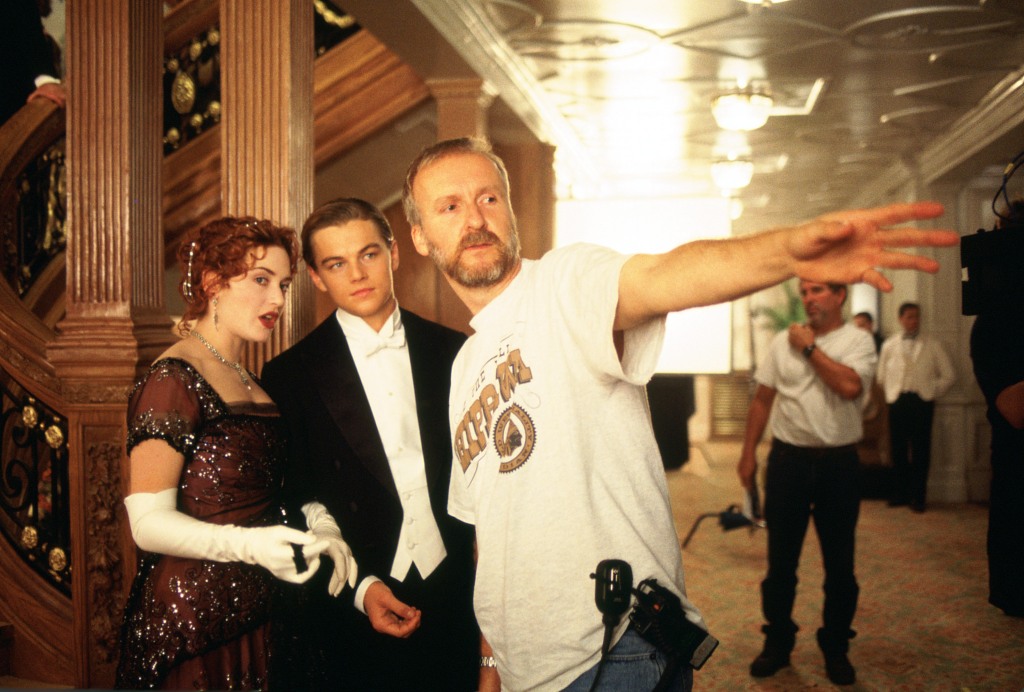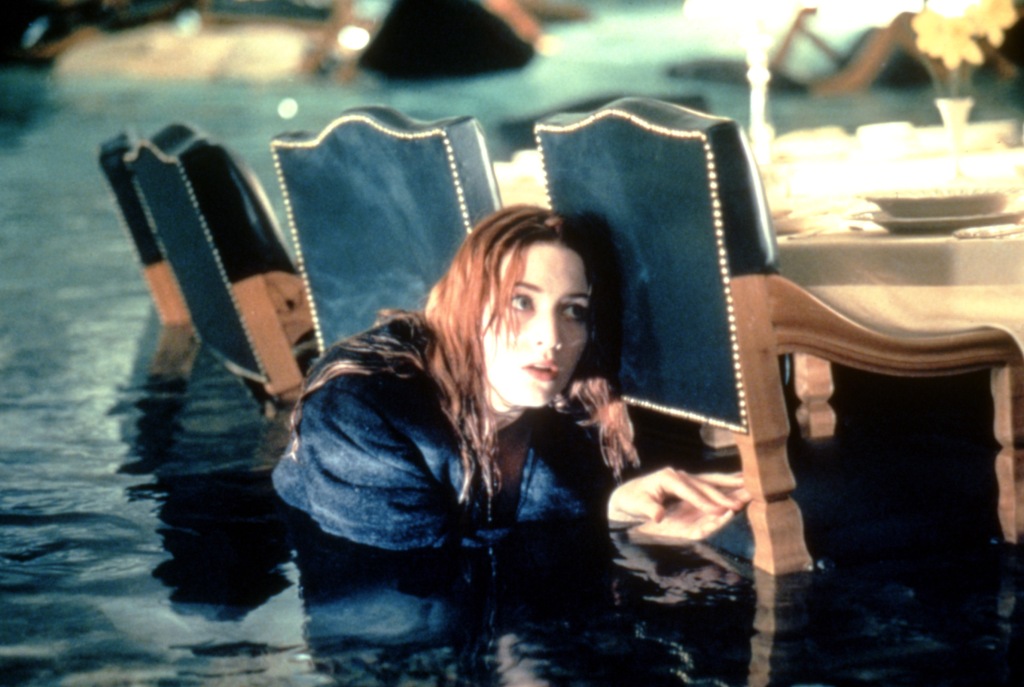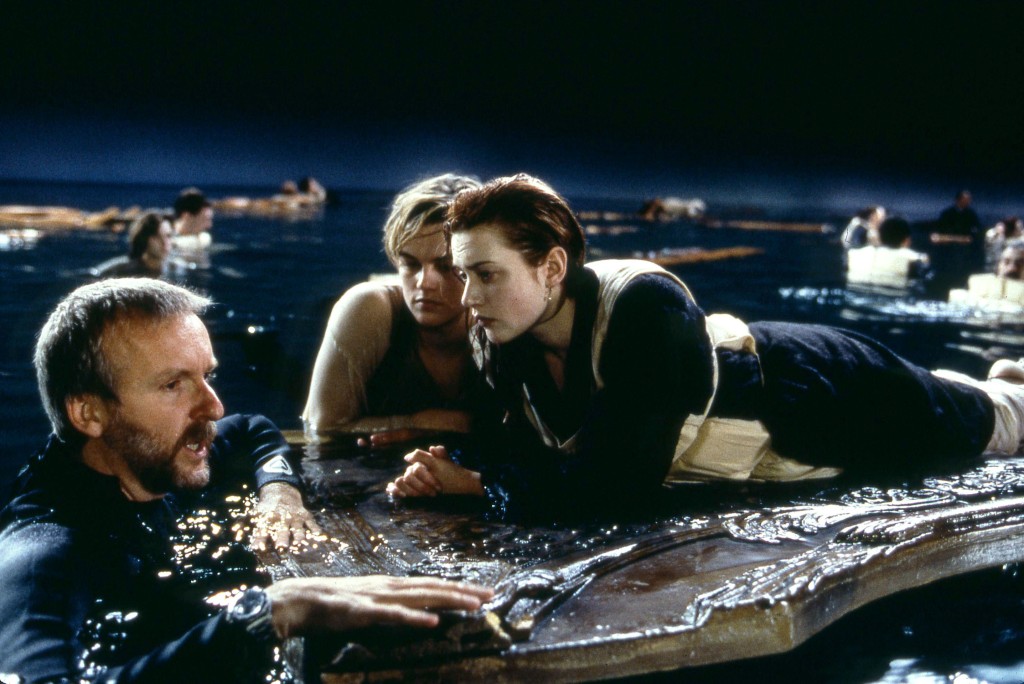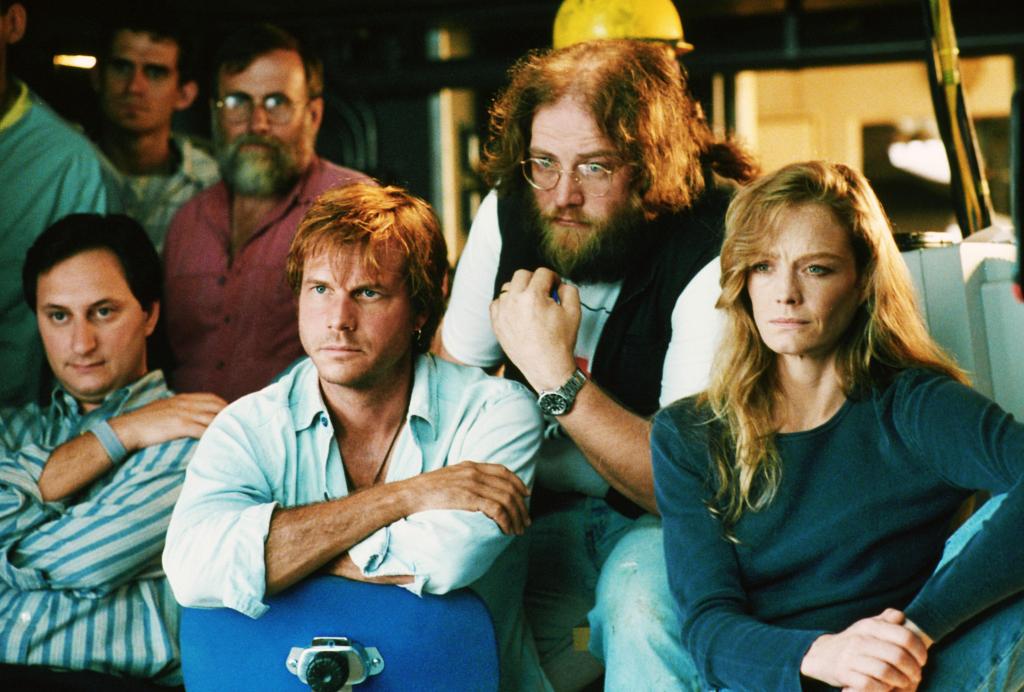Crew poisoned, Winslet almost drowned
On March 23, 1998, James Cameron walked up to the stage at Shrine Auditorium in Los Angeles, accepted the Oscar for Best Director and brazenly shouted, “I’m the king of the world!”
He wasn’t far off. “Titanic,” which Cameron wrote, directed and co-edited, won 11 Academy Awards that night, including Best Picture, and was already the highest grossing film of all time, having earned a staggering $1.2 billion at the worldwide box office. His fellow Canadian Celine Dion’s signature song from the film, “My Heart Will Go On,” had soared to No. 1 on the Billboard charts three weeks earlier. “Titanic” was a bona fide cultural phenomenon.
Funny, because everybody thought the movie about the doomed ocean liner was going to be an epic flop.
“Titanic,” which hits theaters once again Friday after recently turning 25, was the subject of vicious gossip and widespread industry doubt in the lead-up to its initial release. The budget had exploded, the stars were no-names, injuries abounded and the crew, bizarrely, had been poisoned on the job in 1996. In May 1997, a Washington Post story about the production’s turmoil blared, “Going Down With The Ship?”
It’s hard to imagine now, but the naysaying about the behemoth starring the then-little-known Leonardo DiCaprio and Kate Winslet was warranted. Controversial Cameron had nearly doubled his $110 million budget — unusually shared by 20th Century Fox and Paramount because of the sky-high cost — to over $200 million.
Cameron recalled in a 2017 column for the Hollywood Reporter that the Fox chair at the time, Peter Chernin, couldn’t stomach the burden of a “$100 million chick flick,” and similarly queasy Universal had already passed on the pricey project. Only Paramount’s Sherry Lansing was enthusiastic, but Chernin remained skeptical. Cameron was, after all, the guy who directed the not-so-romantic science-fiction films “The Terminator” and “Aliens.”
The lightning-rod director had tongues wagging again when the opening of “Titanic” was delayed from July to December to perfect the elaborate special effects and avoid damagingly cutting the over-three-hour movie.
“We were the biggest morons in Hollywood history and the press had the long knives out, sharpening them as we approached our summer release,” Cameron wrote. “It would have reached a crescendo of scorn just as we put the film in theaters.”

So, the film was pushed, leading pundits to assume the calendar shift was because it was awful. However, the drama wasn’t limited to checkbooks and boardrooms. The set was said to be a nightmare.
Or “an ordeal,” as the polite then-21-year-old Winslet told the LA Times in 1997 of the rocky shoot. The British actress, who played star-crossed lover Rose, suffered from hypothermia and the flu and sustained scores of injuries during six months of watery filming on a $20 million soundstage in Mexico.
“I chipped a small bone in my elbow,” Winslet said, before showing the interviewer some still-purple patches of skin. “And at one point I had deep bruises all over my arms. I looked like a battered wife.”

When filming the demanding sinking finale, the actress nearly drowned when Rose’s coat got caught on a gate in the water.
“I had to sort of shimmy out of the coat to get free,” she told the Times. “I had no breath left. I thought I’d burst. And Jim just said, ‘OK, let’s go again.’ That was his attitude. I didn’t want to be a wimp so I didn’t complain.”
Strangest of all, once DiCaprio and Winslet were finished filming, a large portion of the remaining cast and crew, by then working in Halifax, Nova Scotia, was mysteriously poisoned.

Modern-day scenes featuring Bill Paxton as a shipwreck researcher exploring the Titanic were still being shot, and dozens of people, including Cameron and Paxton, were served clam chowder that had been laced with the drug PCP (a k a angel dust) for lunch. Some of the hungry filmmakers downed three or four bowls of the stuff. Then, the director began to feel sick.
“We saw James Cameron run by the door and this extra running behind him,” crewman Jason Clarke told Vulture. “He said, ‘There’s something in me! Get it out!’”
To this day, nobody knows who spiked the soup.
After months of tumult and media mudslinging, “Titanic” finally landed in theaters on Dec. 19, 1997.

The Post’s film critic Michael Medved gave the movie four stars, writing, “Defying the odds and against all logic, ‘Titanic’ turns out to be worth the money. This insanely ambitious screen epic not only justifies its reported $200 million production budget but, far more important, handsomely repays whatever hard-earned dollars moviegoers will invest to see it.”
“Titanic” stayed No. 1 at the box office for a record 15 straight weeks, and became the highest grossing movie of all time — a title it held until 2010 when it was passed by “Avatar” … directed by James Cameron.
Read the full article Here


